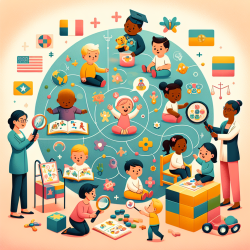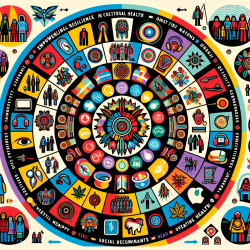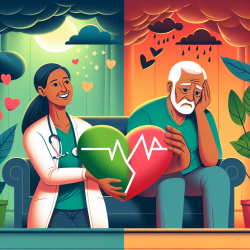Introduction
As practitioners dedicated to improving the health and well-being of children, we constantly seek effective strategies to support vulnerable populations. A recent study on the Kids Clubs program in Haiti offers valuable insights into the benefits of support groups for children and young people living with HIV. This blog explores how practitioners can leverage these findings to enhance their practice and outcomes.
Understanding the Kids Clubs Program
The Kids Clubs program, established in Haiti since 2014, provides psychosocial support to children and young people living with HIV. These clubs offer safe spaces for peer interaction, support medication adherence, deliver health and life skills education, and facilitate connections with healthcare services. The program's success is evident in its positive impact on ART adherence and viral suppression among participants.
Key Findings from the Research
The study employed a mixed-methods approach, analyzing both quantitative and qualitative data. From 2014 to 2018, 1,330 individuals aged 8-29 were enrolled in the program, with over three-quarters participating for at least 12 months. Notably, 77.2% of participants reported consistent medication use, and 64.2% achieved viral suppression.
- Club attendance was positively associated with ART adherence (p < 0.01) and viral suppression (p < 0.05).
- Participants, caregivers, and implementers highlighted the clubs' role in enhancing retention in care, health knowledge, and psychosocial well-being.
Implementing Research Outcomes in Practice
Practitioners can draw several actionable insights from this study:
- Establish Support Groups: Create or enhance support groups within your practice to provide a safe and supportive environment for vulnerable children.
- Focus on Peer Interaction: Facilitate peer-based activities that encourage socialization and shared learning among participants.
- Promote Medication Adherence: Incorporate adherence support into group activities, using peer networks to reinforce positive behaviors.
- Integrate Holistic Education: Offer educational sessions on health, life skills, and psychosocial development to empower participants.
Encouraging Further Research
While the Kids Clubs program demonstrates significant benefits, further research is essential to explore the long-term impact of support groups and identify best practices for diverse populations. Practitioners are encouraged to contribute to this growing body of evidence by evaluating their programs and sharing findings with the broader community.
Conclusion
The Kids Clubs program in Haiti exemplifies the transformative power of support groups in improving health outcomes for vulnerable children. By implementing these research insights, practitioners can enhance their practice and contribute to the well-being of children in their care.
To read the original research paper, please follow this link: Importance of support groups to the health and well-being of vulnerable children and young people living with HIV: a case study of the Kids Clubs program in Haiti.










